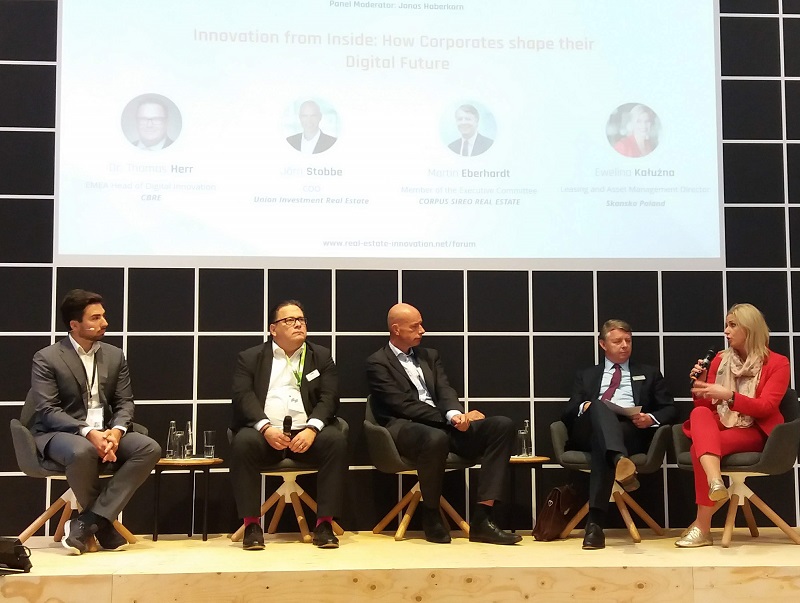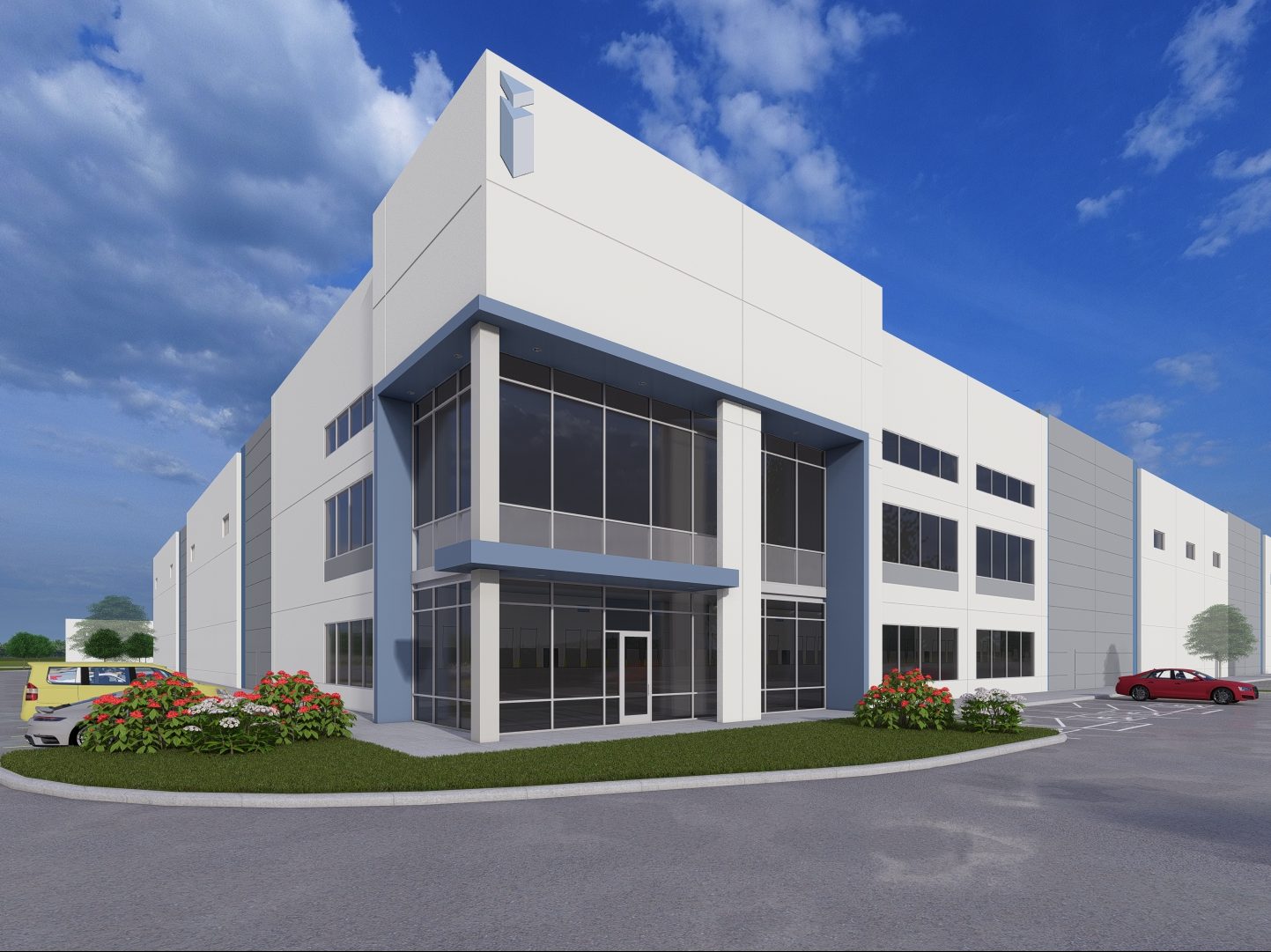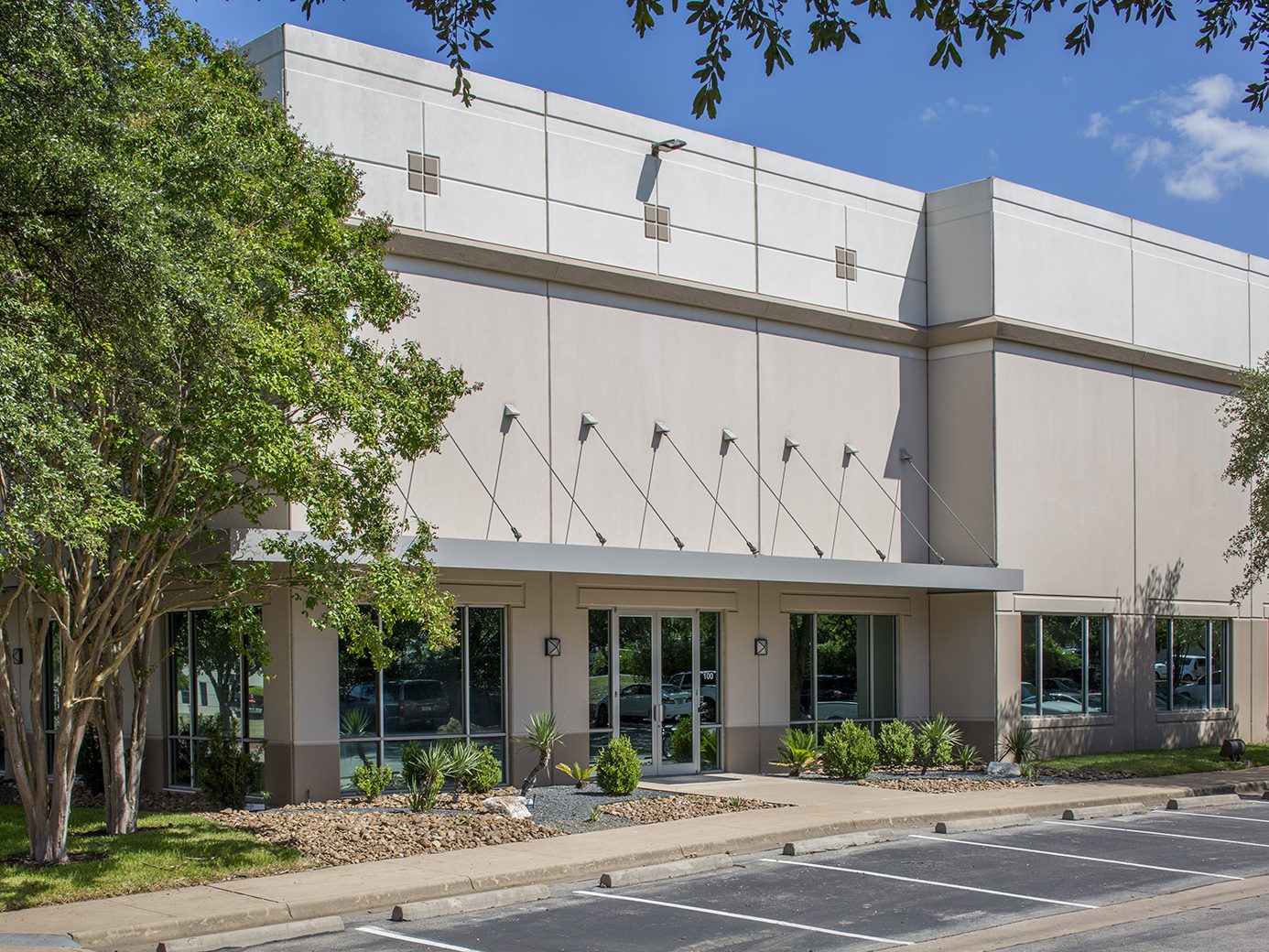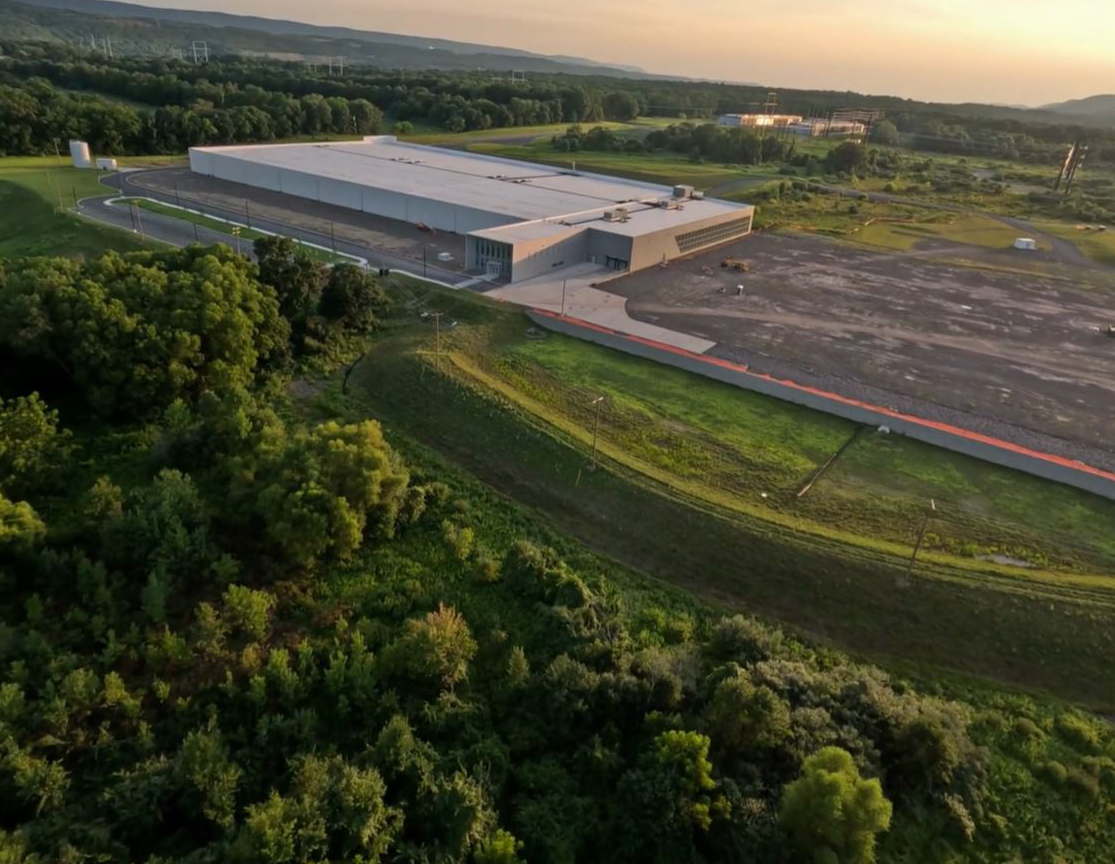Expo Real 2018: It’s Time for Digitalization Standards
Forward-thinking real estate companies understand that digital tools are vital for scaling and improvement. Large players are already considering centralized approaches, but how will this affect innovation?
By Alexandra Pacurar
Artificial intelligence products such as building information modeling, smart home gadgets and mobile apps are slowly but steadily becoming norm in the real estate industry, with companies competing when it comes to innovation in order to stand out. At the same time, large players have already begun considering a centralized and standardized approach to digitalization that would support innovation and benefit everyone.
In one of the last panels at Expo Real’s 2018 Innovation Forum in München, Thomas Herr, EMEA head of digital innovation for CBRE; Jörn Stobbe, COO of Union Investment Real Estate; Martin Eberhardt, member of the executive committee at Corpus Sireo Real Estate; and Ewelina Kałużna, leasing and management director for Skanska Poland, pointed out the urgent need of digitalization standards in the industry. Before this emerging issue becomes a real threat, that is.
Standardization has its challenges
No matter the field, innovation can be a great consumer of resources. And since results are usually shy to appear the first couple of years, there is no immediate gratification. However, digital transformation is impacting real estate and companies have understood that it is essential to get in the game as soon as possible. This has created a need for a more unified approach.
“There is this mentality that who owns the standards will win. We can wait until someone big will do this and we all lose or get together and do it. We can establish the fields and work together on this. Even with the ones we compete with,” Herr said. The first step would be creating norms for standard products. “For example, if we would have the same data backup, in a transaction, that would help a lot,” Eberhardt pointed out.
Some fear that standardization would inhibit innovation. “It’s difficult to be innovative and follow some rules at the same time. When you want to create something new, it’s impossible to be in a frame,” Kałużna added.
The management of digital tools is another issue for forward-thinking real estate players: “One important question remains unanswered: How to combine all the applications and the data of all those applications into one business and use them? This will be the challenge for the coming years,” Eberhardt said.
The integration process becomes even more difficult when discussing global, diverse portfolios. “It’s difficult to do this across the world, across various asset classes and business units, and the problem is being precise about how the data base is structured. This is the core of what our data scientists are doing, but it will never be done. It will always be work in progress,” Herr concluded.
Build, buy or partner?
New up-and-coming tech firms will play a key role in the digitalization of corporations, according to the Innovation Forum panelists. While most companies also have internal teams dedicated to this process, many decided to outsource for more efficiency. “In 50 percent of all digital innovation efforts in real estate, it takes, on average, a year for a product to be ready for launch. This is a lot. Creating partnerships and buying products is the way to go,” Herr explained, and his peers agreed.
Skanska Poland is attending and supporting startup challenges as a way to speed up its digitalization process, but is also implementing its own products. “We are now testing air-cleaning concrete. We are using it for the pavements around our buildings. We are testing a lot of things for the environment, we want our office projects to be healthy. We are usually doing pilot projects, we test something for 12 months and collect data,”Kałużna said.
Modernizing the business is strongly linked to scouting new talent, but corporations are not ready to let go of experienced professionals just yet. “We are also looking for experienced people who are battle-ready, not just digital people who haven’t seen a downturn,” Stobbe explained. “Diversity is a really big issue. We need to have the right balance of young people and experienced people,” Herr added.
Cover image by Thomas Plettenberg / Messe München. Copyright 2018, Messe München GmbH, all rights reserved









You must be logged in to post a comment.